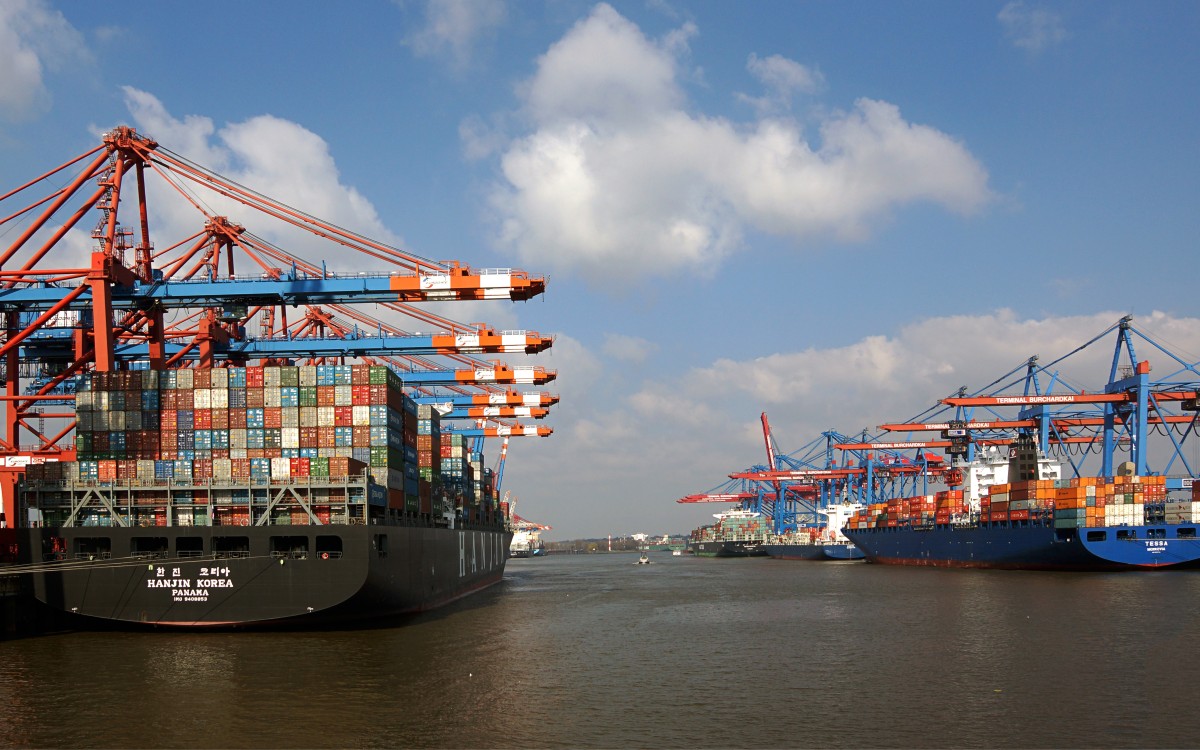Improving climate change impact assessments of open economies by beyond state-of-the-art economic modelling approaches.

A case study on the implied transborder climate change risks of international supply chains.
Case content
The analysis quantifies spill-over effects of climate impacts on trade. For the German economy, transboundary climate risks are assessed over multinational supply chains. Global SSP scenarios projected with the GINFORS model provide the analytical framework.
Research Innovations
"Our case study demonstrates that, compared to conventional biophysical assessment approaches, two important additional social research questions can be explored by applications of macroeconometric simulation models: We consider the impacts of climate change on the originally assumed economic development paths. In addition to aggregated developments, we also examine the possibilities for further disaggregated analysis of selected economic sectors. This allows for a improved assessment of the role of future socio-economic development (SSPs) from climate change risks.
The application chosen for this demonstrative assessment considers the case of ex ante assessments of transborder climate change risks of international supply chains.
Study areas
National socio-economic effects of multi-national supply chain disturbances due to foreign climate change impacts: Germany, cross-border.
Stakeholders involved
This demonstrative assessment exercise can be carried out as stand-alone desk research. But we invite all other project partners and stakeholders addressed by them to cooperate. One obvious option in this respect is given by case study 2b, which is in contact with German port authorities.
Summary data collection
The main working tool is given by the in-house designed global macroeconometric simulation model GINFORS. All models developed by GWS are generally characterised by their comprehensive empirical foundation (historical time series observations from well established statistical reporting frameworks like National Accounts, Input-Output Tables, Energy Balances, ...).
For the simulation studies, the model database has to be supplemented by case specific input data. The GINFORS model includes bilateral data on international trade by different industries. Specific data for goods that are highly exposed to transborder climate change risks are available in the COMTRADE database. SPP datasets can be freely accessed on servers of the International Institute for Applied Systems Analysis (IIASA). "
Expected results
The case study demonstrates that (compared to conventional climate risk projections) further details of socio-economic scenario projections (like sectoral developments and international spill-over effects) can be integrated in climate risk assessment studies.
The case study also demonstrates that the feedbacks from biophysical climate impacts on future socioeconomic development trajectories can be mapped by applications of macroeconometric simulation models.
Simulation results could provide policymakers with a better qualitative understanding as well as a more reliable assessment of prospective future impacts of transborder climate change risks.
Case study responsible
Gesellschaft für Wirtschaftliche Strukturforschung (GWS)
